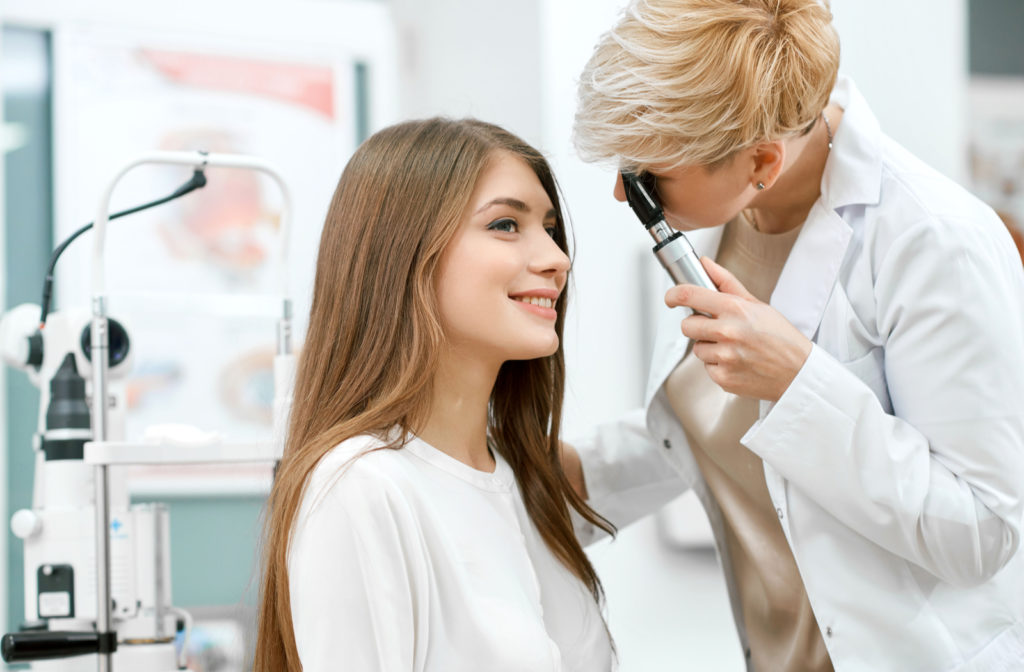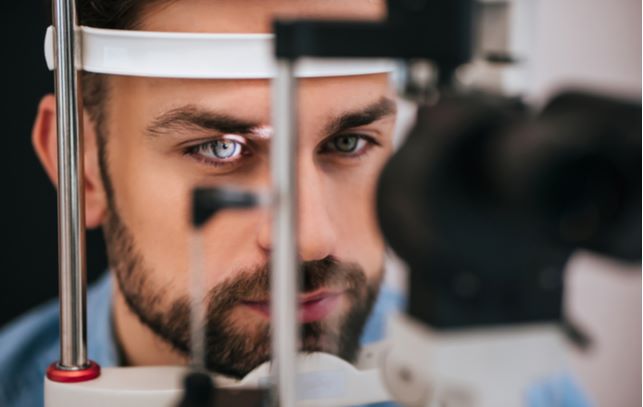While most people know what an eye exam is, they may not know what to expect during their appointment. The tests your eye doctor performs during your eye exam help catch early signs of eye disease and assess your vision. What can you expect during your next eye exam?
Continue reading to learn more about eye exams, including what tests you can expect during your examination.
Why Do You Need an Eye Exam?
Eye exams can seem unnecessary if you can see fine, but they play a crucial role in protecting your eye health and vision. Comprehensive eye exams help your eye doctor identify eye diseases before they can further damage your vision.
Many diseases develop with limited if any visible symptoms, but the tests your optometrist conducts help diagnose these problems in their earliest stages. The earlier your eye doctor diagnoses a problem, the sooner they can provide treatment, helping prevent potential vision loss.
Eye exams are important for your eye health and vision, so how often should you book an appointment?
How Often Should You Get an Eye Exam?
Regular eye exams are important for helping protect your eye health and vision. Even if you can see fine, you should book eye exams on a consistent schedule. Your eye exams aren’t only for when you’re having visual problems.
According to the Canadian Association of Optometrists, adults between the ages of 20 to 64 should have an eye exam at least every 2 years. Adults 65 or older should have an annual exam to check for changes in their vision. Your eye doctor may want to see you more frequently if you have a vision or eye health problem.
What to Expect During a Comprehensive Eye Exam
Your comprehensive eye exam is more than just a test of how well you can see—the exam helps your optometrist look for signs of vision problems. Your eye exam is an important part of preventative health care.
You can expect many different tests during your comprehensive eye exam. Your exam will typically begin with a review of your medical history.
Medical History
Your eye doctor will ask several questions about your current eye health and vision. Reviewing your medical history helps them identify potential risks and understand your unique visual situation. You can expect to discuss any current medications, issues you’re facing, your previous medical history, work and home conditions, and family history.
Visual Acuity
Your visual acuity is how well you see from different distances (think of 20/20 vision). The most common way to test your visual acuity is with an eye chart. This test can help determine if you have a refractive error such as:
Another important part of assessing your vision is the refraction test. This test determines your prescription, which helps your eye doctor prescribe glasses or contact lenses to provide you with clearer vision. Your optometrist uses a phoropter during your refraction test.
Preliminary Testing
Your optometry team will conduct several preliminary tests to evaluate different aspects of your vision. They will assess your:
Your optometry team may conduct additional tests in your eye exam. These tests include:
- Keratometry: How steep or flat the cornea is, used to diagnose refractive errors
- Intraocular pressure: The fluid pressure of your eye, used for glaucoma testing
- Lipiscan: How well the meibomian glands work, used in dry eye analysis
- Retinal imaging: Images of the retina, used to identify signs of eye disease
- Tear break-up time: How fast tears on the eye evaporate, used in dry eye analysis
Eye Coordination
Your eyes need to work together to help you see everyday images. Each eye sees a slightly different image, and the brain fuses these images into one complete picture.
Eye coordination keeps your eyes aligned and working together. Your eye doctor will test your binocular vision during your eye exam.
Glaucoma Testing
Glaucoma can cause severe vision loss if left untreated. An early diagnosis is essential for protecting your eye health and vision from this disease. Unfortunately, glaucoma typically develops silently and painlessly.
Many but not all types of glaucoma raise your intraocular pressure (IOP). Testing for increases in this pressure can help determine your risk of glaucoma. Your optometrist will use a tonometry test to measure your IOP.
Eye Health Evaluation
An eye health evaluation involves looking at the eye’s internal structures for signs of eye disease. Your eye doctor assesses your eye health through several diagnostic tests. Many eye diseases develop with little to no symptoms, so this portion of your eye exam is essential for catching early signs of an eye problem.
Your optometrist will examine the retina, macula, and optic nerve for symptoms of eye disease. Some of the technology your eye doctor uses for this is visual field testing and optical coherence tomography.
Visual field testing assesses how wide an area you can see while focusing on a central point. This test helps find blind spots in your peripheral vision, identifying potential vision loss from glaucoma.
Optical coherence tomography (OCT) is a noninvasive imaging test used to capture detailed images of your retina. These images allow your eye doctor to map and measure the layers of your retina, helping diagnose and treat age-related macular degeneration and diabetic eye disease.
Your eye doctor will discuss your results after reviewing all of your tests. They’ll then recommend treatments for any problems they discover, such as glasses, contacts, prescription medications, or other options.

Book Your Eye Exam Today
Regular eye exams are vital for protecting your eye health and vision. Book consistent appointments even if you have no visible problems—there could always be something developing internally.
Contact your optometrist and book your next eye exam today.

